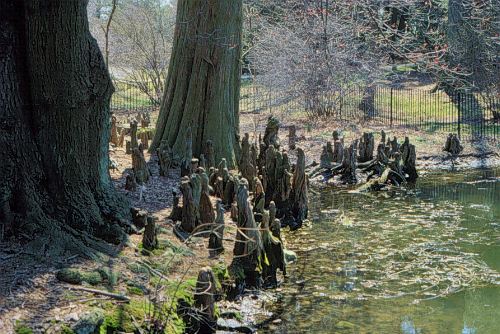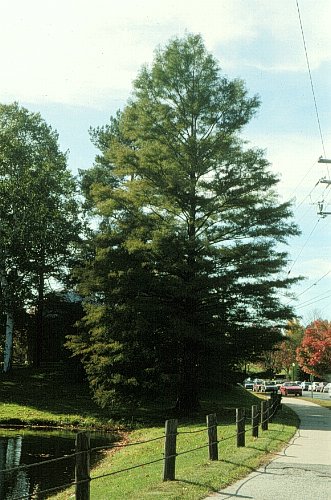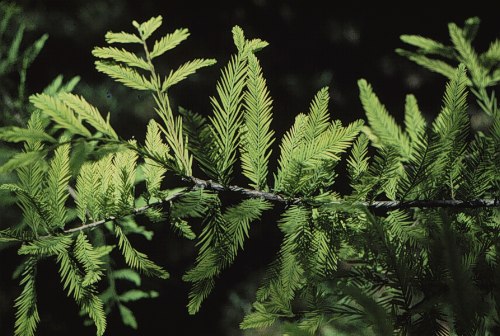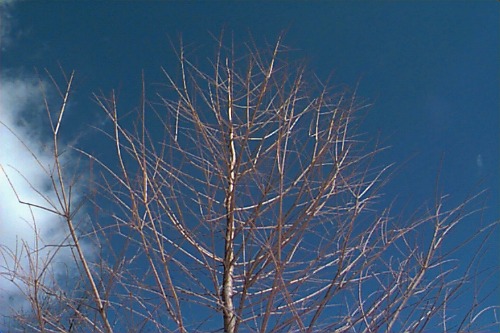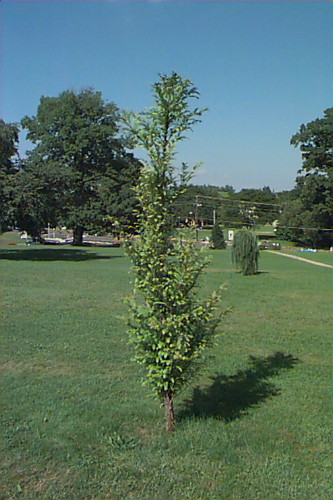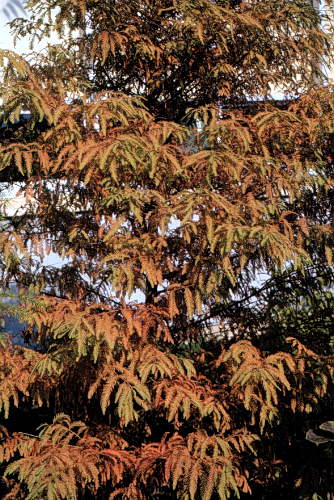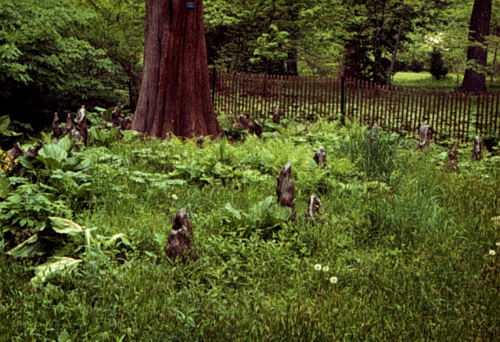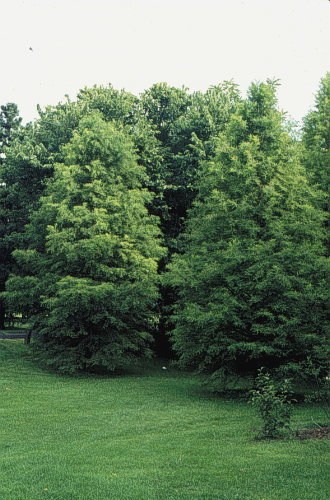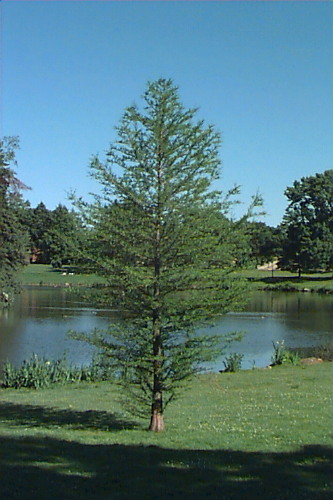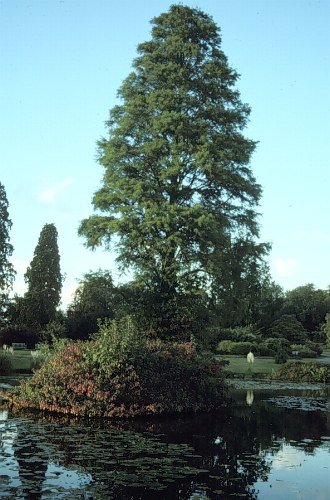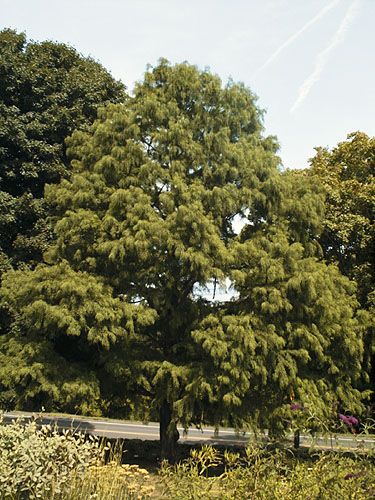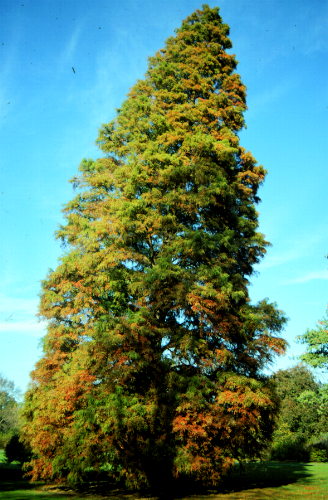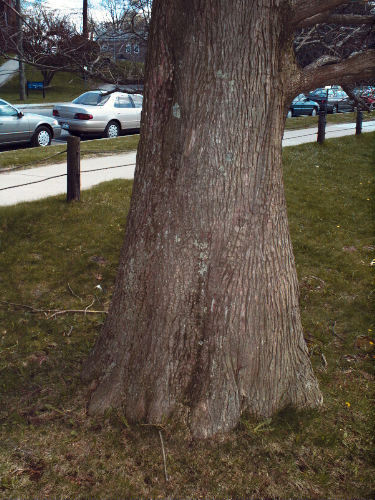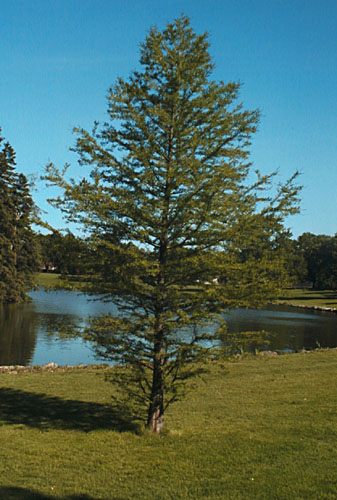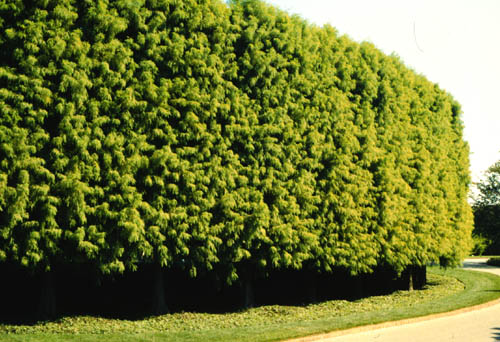Taxodium distichum
Common Baldcypress
Taxodiaceae
ExpandHabitat
- native to southeastern United States primarily
- cold hardy in zone 5, perhaps warmer zone 4
- generally found in wet swampy areas, often in standing water
Habit and Form
- a deciduous conifer
- grows 50' to 70' tall
- pyramidal to conical, especially when young
- some older trees develop spreading, irregular, or almost flat-topped forms
- develops a buttressed trunk base
- root "knees" can form on older trees in wet sites
- branching more or less horizontal
- texture is medium-fine and airy
Summer Foliage
- leaves are deciduous
- stems are either persistent or deciduous
- persistent stems hold spirally-arranged needles and deciduous stems
- deciduous stems hold needles in 2-rankes and lack buds
- needle leaves are flattened, 0.33" to 0.75" long
- foliage emerges bright yellow-green and matures to a soft green
- leaves emerge late in the spring
Autumn Foliage
- fall color is usually quite attractive
- needles turn a warm, reddish brown color
Flowers
- monoecious
- make flowers in pendulous 4" to 5" clusters
- female flowers are cones
- bloom time is March and April
Fruit
- globe-shaped cones
- change from green to brown
- 0.5" to 1" diameter
Bark
- attractive
- reddish brown
- vertically fibrous and fissured
- exfoliates little
Culture
- full sun
- tolerant of permanently wet soils, but also tolerant of normal soils as long as they are not excessively dry
- prefers acidic soils
- relatively care-free
- transplant from container or B&B
- very tolerant of strong winds
Landscape Use
- as a lawn tree
- for shade
- for decoration
- useful is wet sites
- works well at pond edges
- shows well in groupings or groves
- airy foliage texture useful
Liabilities
- a number of diseases and insects can attack weakened trees
- typically trouble free
- perhaps spider mites pose the greatest threat in Connecticut
ID Features
- spiral leaf arrangement on most stems
- compare to Metasequoia glyptostroboides which has opposite leaf arrangement
- slender twigs with raised leaf scars
- "knees" on plants in wet sites
- buttressed trunks
- reddish brown bark
- airy foliage
- deciduous conifer
- conical habit
Propagation
- by seed
- by cuttings for cultivars
Cultivars/Varieties
'Fastigiata' - This selected form maintains a more narrow, columnar habit than the species.
'Monarch of Illinois' - A newer selection, this selection is most notable for its wide-spreading habit, to 90' tall with a spread of 70'. The width of this form is unusual, given the pyramidal-columnar habit of the species. It may, however, express higher susceptibility to mites than other new selections, such as 'Shawnee Brave'.
'Pendens' - Occasionally offered by specialty nurseries, this old form differs mainly in its drooping branch tips. The overall form is pyramidal, with horizontal primary limbs.
'Shawnee Brave' - The narrow, fastigiate form of this plant makes it useful as a street tree. It grows to 80' tall and only 20' wide, with high quality green foliage that is mite resistant.
